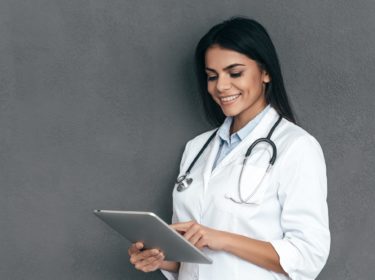Sometimes we don't feel well and need to go to the doctor's. When this happens, it's especially important that we know how to communicate what is wrong so that the doctor can help us.
In the tables below, we've collected lots of useful phrases that you will hear as well as be able to use when at the doctors. Take a look at them and feel confident next time you need English at the doctor's!
Relax with Meditative Music
Relax with the Sounds of Nature: River
Relax with the Sounds of Nature: Wind
We at lingoneo want to provide you with learning material that truly supports your English learning. That's why we could use your help and feedback: Did you enjoy this exercise? Was it helpful? Were you able to relax? Do you have any suggestions for improvement, other feedback, or wishes? We look forward to hearing from you via our contact form.



In the tables below, we've collected lots of useful phrases that you will hear as well as be able to use when at the doctors. Take a look at them and feel confident next time you need English at the doctor's!
At the Reception
When you first arrive at the doctor's you'll need to give your name, the reason for your visit, and show your insurance information. The phrases below will help you do this!I have an appointment at 2:00
If you need to tell someone when you have an appointment for something, then use the sentence pattern I have an appointment at + TIME. Depending on who you are talking to, there are lots of ways someone could respond. For example, if you told a receptionist at the doctor's office when you have an appointment, they might say something like Ok, please take a seat.
Could you fill in your medical history on this sheet, please?
In the United States and other countries, it's always a good idea to show up early for a doctor's appointment. The reason for this is because you usually have to fill out different forms before you can see the doctor. You get these forms when you check in at the front desk.
Questions From the Doctor
Once you finally meet with a doctor, you'll need to be able to explain what's wrong and talk about any medication you might be taking. Have a look at the questions below, which are common questions that you'll need to be able to answer.The Examination
After the doctor has an idea of what's wrong, they'll begin their examination. You'll most likely hear some of the phrases below during an examination.Treatment
After an examination, a doctor will usually suggest some sort of treatment. Here are some examples of what he might say to you.Leaving the Doctor's Office
Before you leave the doctor's, you'll need to stop by the front desk one more time to check out. Here you'll be able to make another appointment or ask general questions.Relax while Listening to the Phrases
Keep calm and learn English! Listen to the phrases again with relaxing background music. This will help you improve your listening skills and remember the phrases. Choose your favorite style, then kick back and relax!
Relax with Meditative Music
Relax with the Sounds of Nature: River
Relax with the Sounds of Nature: Wind
Study Anytime & Anywhere with MP3s and PDFs
Take your learning on the go with our free mp3 and pdf downloads! Whether you're on your way to work or enjoying a coffee break, any time can be filled with a short review. Enjoy and happy learning!
Phrases
- Preview Download Phrases Full Article
- Preview Download Phrases List
- Preview Download Phrases: At the Reception
- Preview Download Phrases: Questions From the Doctor
- Preview Download Phrases: The Examination
- Preview Download Phrases: Treatment
- Preview Download Phrases: Leaving the Doctor's Office
Dialogue
Practice & Record a Dialogue
Take the next step and use what you’ve learned! Check out this topic’s dialogue unit and practice the phrases in a variety of exercises. Test your knowledge and get ready for real life conversations!
Good afternoon. What have you come in for today?en
I have a bad cough and a fever.en
When did the fever start?en








